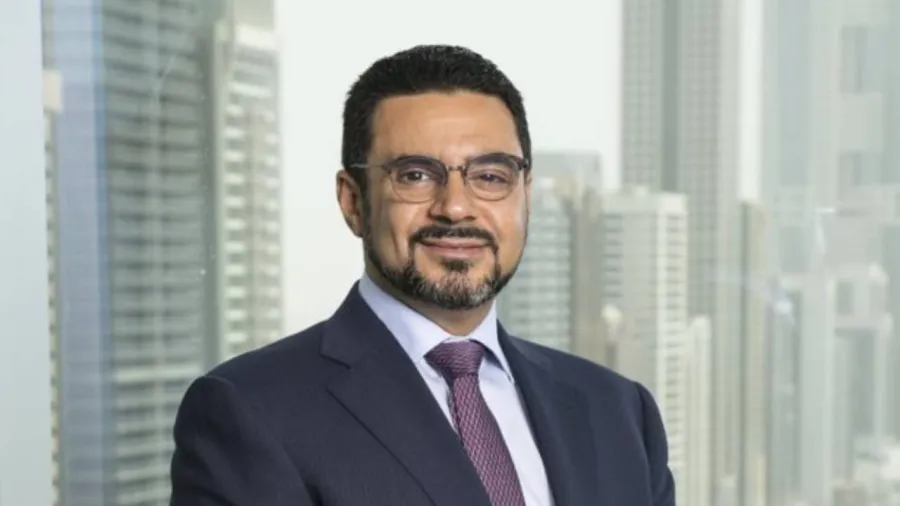
Grant Thornton UAE CEO joins panel of judges at the Middle East International Business Awards
Hisham Farouk shares insights on opportunities for businesses in the Middle East.
As the CEO of Grant Thornton UAE, Hisham Farouk has successfully led the firm’s offices in Dubai, Abu Dhabi, and Sharjah for over nine years. With a focus on innovation, as well as exemplary leadership, he has played a key role in transforming the firm into one of the fastest-growing companies in the UAE.
Hisham has completed a two-term period as a member of the Board of Governors in Grant Thornton International and served on its enterprise risk, technology, and innovation advisory committee.
Across the region, Hisham is well-known for leading high-profile advisory engagements for some of the largest international conglomerates and local groups, mainly across the financial, hospitality, real estate, construction, aviation, fast-moving consumer goods, small and medium enterprises (SMEs), and family business sectors.
Hisham values education and, as a keynote speaker, has delivered a number of presentations globally. He also trains and educates senior executives in some of the largest organisations worldwide.
As one of the judges in the Middle East International Business Awards, Asian Business Review sat down with Hisham as he shared insights on opportunities in the Middle East for businesses to explore and the upcoming trends in the region.
Can you share with us your work experience or a backstory that has contributed to your expertise?
I have always had a keen interest in technology and innovation which I believe are the key enablers of any business today. I am very fascinated by upcoming technological advancements and we, at Grant Thornton, consistently lookout for opportunities to utilize these technologies to serve our clients better. Acting as a mentor to leading entrepreneurs in the region has not only allowed me to be able to consistently support the community but has also helped me gain new perspectives from the brightest of the minds. Furthermore, I believe my vast experience of working with international clients provided me with a strong diversified outlook and guided me towards success whilst leading high-profile advisory engagements for some of the largest groups in the Middle East region.
Which trends do you think will define businesses in the Middle East for the years to come?
In alignment with global sustainability trends, we have seen companies in the Middle East accelerating their efforts to implement environmental, social, and governance (ESG) frameworks and policies as stakeholders increasingly demand businesses to measure and address their ESG impacts. Companies committed to integrating ESG goals into their corporate and investment strategies are expected to be favoured both by consumers as well as investors.
In my view, the adoption of ESG standards across industries will significantly support the diversified economic growth in the region and define long-term sustainable development in the coming years.
Almost all industries in the region have been severely affected by the pandemic. What's your advice to those who are in the early stages of recovery?
Amidst all the challenges posed by this global phenomenon, it gave companies an unprecedented opportunity to revisit their business models and operate with a fresh perspective on creating business value and increasing efficiency.
It is essential that businesses continue to apply the same principles as during the pandemic itself – standards set by the pandemic are here to stay for the foreseeable future. It includes developing a customer-first mindset, optimal risk management that focuses on liquidity, continuous cost efficiency measures, and accelerated adoption of new technologies. Gaps in the portfolio must be proactively identified and addressed constantly through scenario modelling. Businesses need to be agile, but at the same time not lose sight of the future and of long-term strategy and goals. And ultimately, any decisions taken by the business must carry a sense of social responsibility, i.e. safeguard the community or contribute to economic rebuild.
Only with true resilience and collaboration, businesses can come out with unmatched competitive advantage and be part of transformative growth.
How has digital transformation affected the way companies are being formed today? What are some opportunities that businesses should consider to start their road to digitalisation?
As much as the digital transformation was a driving force for most of the companies in the pre-pandemic era, we have seen that the pandemic has actually accelerated digital transformation and created a landscape that continues to encourage cutting-edge innovation and technological adoption. The evolved way of doing the business certainly requires greater investment and prioritization of technology, as well as cybersecurity. With increased reliance on technology, it is critical for businesses to carefully evaluate the ROI on technological investments made historically as well as on future investments required to effectively run a digitally-focused competitive business. Such transformed business models have indeed brought the entire global economy together and opened a whole different avenue of opportunities with no physical boundaries.
To be able to achieve a successful digitalisation, I’d say it is essential for businesses to figure out their business strategy before investing in anything, find balanced leverage between internal resources and external experts, and follow a holistic approach to digitalisation instead of siloed approaches. We could say that the business vision for the future of the organisation should ideally drive the technology and not the other way round. Finally, the digitalisation process is ultimately incomplete if businesses are unable to tap into the power of high-quality data, hence companies must aggressively manage their End-to-end data supply chains.
Despite global economic headwinds, the Middle East continues to attract investments. What do you think are the reasons for this?
The Middle East has traditionally been an attractive investment destination due to its natural resources, trading opportunities, central location, and favourable tax environment. Today these are augmented with an educated and skilled workforce, easy access to finance, liveability, cutting-edge infrastructure, worldwide connectivity along with ease of doing business which positions the region as one of the most attractive destinations globally. With a vision to diversify the economy and create a world-class business environment, there are multiple government-led initiatives that set the tone for investment, promote evolved ways of doing business, and inspire investor confidence in the region.
As an impact of the pandemic, we did see fundamental shifts in the global economy and the Middle East was no exception, of course. However, swift and effective reforms or strategies reflected the region’s ability to navigate challenges, accelerated the economic recovery, and reinforced its status as a preferred global hub. As a firm, we see a consistent recovery in the market in terms of an increased number of transactions and acquisitions happening.
Where are the opportunities in the Middle East for businesses to explore and how can they leverage these?
As technology adoption is becoming increasingly crucial for competitiveness and economic growth in the region, there is a huge opportunity for businesses to participate as an enabler in this transformation. Specifically, sectors such as e-commerce, healthtech, and fintech will continue to witness significant investments, as well as regulatory advancements as governments recognize them as core sectors of their future digital economies. A public-private push for world-class healthcare is driving digital innovation such as digital emergency and safety technology in the Middle East which provides huge business opportunities. Similarly, the fintech landscape in the region is rapidly evolving from a focus on digital payments to expanding access to finance for both consumers and SMEs. This is supported by a welcoming legal and regulatory environment for fintech startups and mature growth platforms through forward-thinking policies.
In my view, collaboration and investments in futuristic business models will be key for businesses to be a pioneer in the region. In order to stay relevant, businesses need to leverage advanced technology to build resilient structures and remain agile. We are excited about the growing business opportunities in the fast-paced region as we also expect SMEs to continue to play a pivotal role in the regional economic growth.







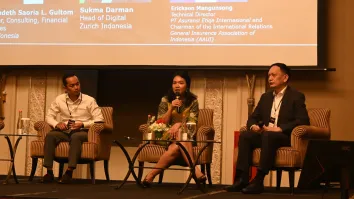

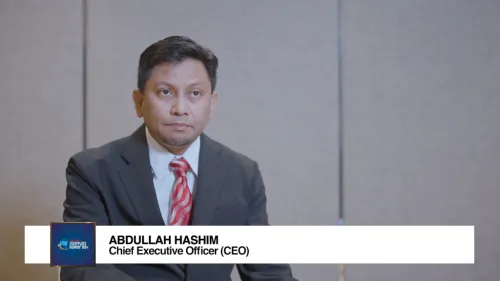

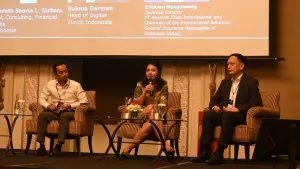
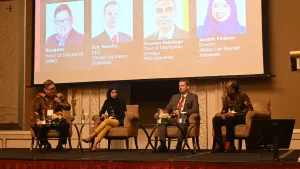
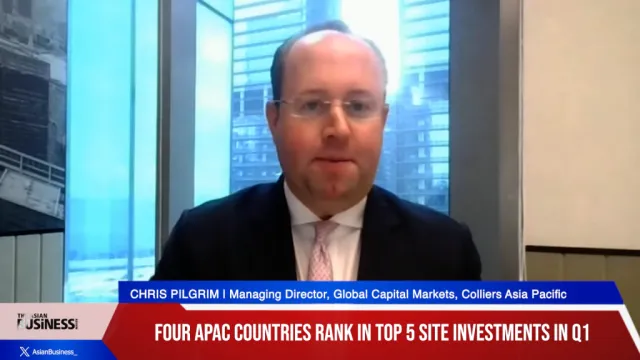
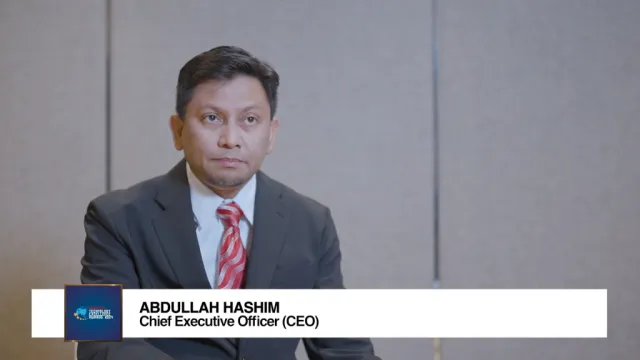
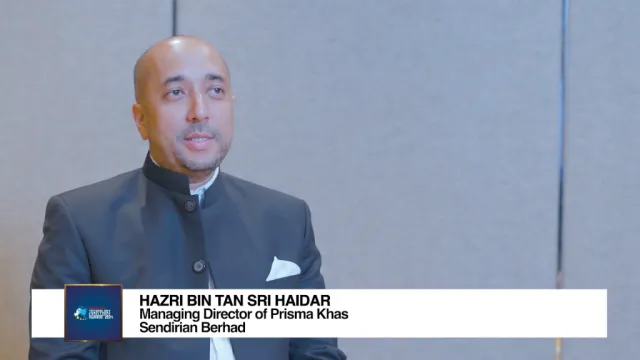
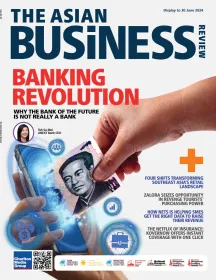
 Advertise
Advertise







